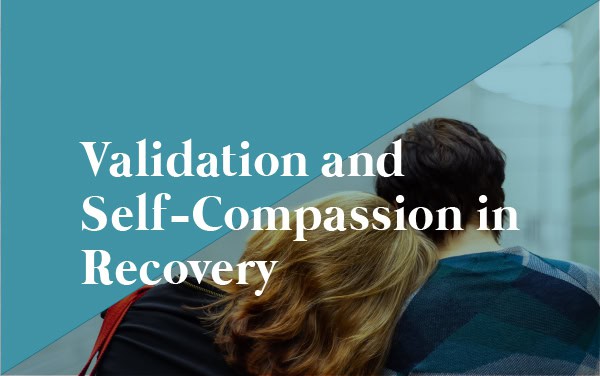

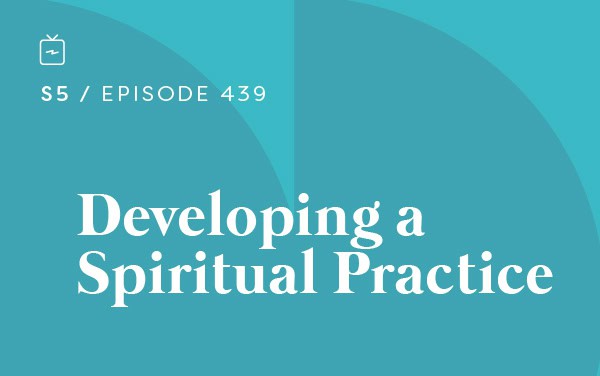
RE 439: Developing a Spiritual Practice
Podcast: Play in new window | Download
Subscribe to the Recovery Elevator Podcast Apple Podcasts | RSS | More
Episode 439 – Developing a Spiritual Practice
Today we have Liz, she’s 38 from LaVale, MD and took her last drink on December 31st, 2022.
Thank you to the Café RE chat host, you all do an incredible job!
[02:22] Highlights from Paul:
This is not a religious podcast. Paul feels that religion and spirituality are not two sides of the same coin.
When we drink alcohol, spiritually, our electrical current to the universe is severed. In fact, in many cultures, the name alcohol literally means, soul sucking spirit. Then mentally, the chemical alcohol turns our brains into tepid soup. After that, we have the physical component – pancreatitis and liver failure come to mind.
What is spirituality? What is a spiritual practice? We are connecting with the self. We are connecting within. You become more ocean and less wave. In short, spirituality is connection with the self, which then leads to a connection with nature, the universe, a higher power, and some may call it God. Why do we drink? Why did we drink? To get this sense of connection.
Paul shares many examples of spiritual practices and reminds us that we don’t have to wait for the normal order of healing in order to implement some these. We can start right now.
Better Help: www.betterhelp.com/elevator – 10% off your first month. #sponsored
[11:03] Paul introduces Liz:
Liz is from a small-town Maryland. She is married with two kids; she is a registered nurse and attending school as she is working toward her master’s degree. She enjoys spending time outdoors: kayaking, hiking, camping, being a soccer mom.
Liz grew up in a tightknit family and was the youngest of three sisters. She first tried alcohol with a cousin when she was in 6th grade. She didn’t really enjoy it and thought it tasted terrible. She wasn’t a big drinker in high school, just the occasional party.
She drank like everyone else during college and worked in the service industry. It was normal for her to be the last person drinking at parties, but she worked and went to school with little issue.
Liz’s drinking escalated when she began nursing school. She was already married with two kids and struggled balancing it all. She used alcohol as a stress reliever. Her first job after graduating was in the ICU working night shifts. She would drink after her shifts and tried to hide the amount of drinking from her husband. She still didn’t feel she had a problem. Liz says her moderation attempts found her feeling more stressed and caused mood swings.
Liz went to inpatient rehab and was able to stay sober for six months. She started attending AA and using the tools she learned in rehab. Her relapse happened on a soccer trip after another parent called her out for not drinking which triggered her. She now feels that her lack of planning or having a network contributed to the relapse as well. She lost control of her drinking. Over the next few years, she spent a lot of time in treatment and trying to figure out what was causing the issues and what needed to change.
Liz got a sponsor with AA and started the steps right away after her last drink. She sometimes gets cravings but plays the tape forward. She knows that if she drinks, she will not be able to be there for any of her family if they need her. Liz made a post on Facebook about her recovery and received a lot of love and many messages from people regarding their own struggles. Liz says that she feels so much freedom now that she is alcohol free and has found her higher power.
Liz’s favorite resources in recovery: AA, recovery podcasts
Liz’s parting piece of guidance: don’t ever give up, no matter what happens you can wake up the next day and keep going.
Cafe RE Use the promo code OPPORTUNITY to waive the set-up fee
Recovery Elevator
Go big, because eventually we all go home.
I love you guys.
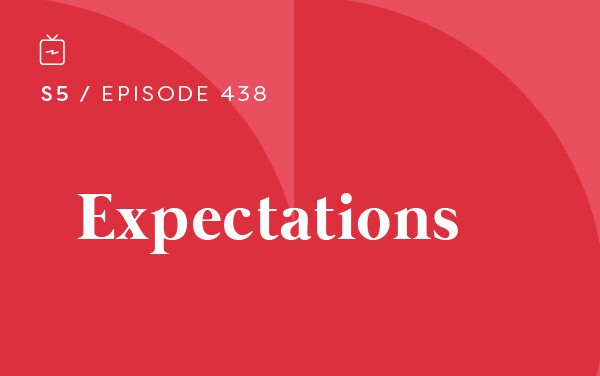
RE 438: Expectations
Podcast: Play in new window | Download
Subscribe to the Recovery Elevator Podcast Apple Podcasts | RSS | More
Episode 438 – Expectations
Today we have something different lined up. Instead of one interviewee, we’ve got a panel of sober rockstars who have been kicking ass and taking names in this field for a while now. You’re going to love it.
Recovery Elevator welcomes our newest sponsor, Athletic Greens.
[02:33] Highlights from Paul:
We are full of expectations. Both for ourselves and other people. Top of that list is we expect happiness in a world where nothing is guaranteed. We have been conditioned throughout our life that any discomfort represents failure, and a certain product, drink or pill will end the suffering.
How do we let expectations go? It’s impossible. All you can do is become aware you are expecting something different for yourself or other people.
Another reason why expectations are dangerous is it throws gratitude right out of the window. We also expect the earth to keep providing the natural resources needed for our survival, which are never guaranteed. We definitely need to approach sunshine, fresh drinking water, clean air, and shelter from a stance of gratitude opposed to expecting them to be delivered to us because we deserve them. More on that next week.
“The days in which my gratitude exceeds my expectations are really good days” – Ray Wylie Hubbard.
Better Help: www.betterhelp.com/elevator – 10% off your first month. #sponsored
[10:54] The interviewees introduce themselves:
Laura Cathcart Robbins, the host of “The Only One in the Room” podcast and author of the book Stash: My Life in Hiding.
Eric Zimmer, the hose of “The One You Feed” podcast and creator of a program called Spiritual Habits.
Paul Churchill, the host of “Recovery Elevator” podcast (who we all know and love).
Gill hosts the Sober Powered podcast and is also a chemistry professor in the Boston area.
Gill wants to talk about early sobriety and what the experience was like for each guest.
[14:33] Laura has almost 15 years in sobriety. She shares that her first month of sobriety was spent in rehab. She hated it and felt resentful of those that enjoyed it. She attended a lot of recovery meetings and felt sentenced and never felt like she fit in initially. Laura remembers the early days often and knows she doesn’t want to return there.
[17:18] Eric first got sober from heroin when he was 24. He stayed sober for about eight years but returned to alcohol for a few years. He has since gotten sober again and has been sober for 16 years. What Eric remembers about early recovery is that just quitting substances wasn’t enough. He was plagued by the war that went on between using and not using and he feels that after some time in recovery, the turmoil subsides.
[20:08] Paul had a moment of clarity during a wedding he was DJ’ing where he was extremely drunk and had to ask a colleague to finish. He quit drinking a few days later and planned on going to rehab. He decided to wait and try recovery with AA and spending more time in nature.
[22:48] Gill is three and half years sober. She quit because it was affecting her mental health. She was scared to share her issues with anyone initially, so she did the first few months in recovery by herself.
The guests continue to share their experiences around their early sobriety, their readiness to quit drinking and reflect on what helped them in recovery then and what continues to help them now.
Connect with Laura – The Only One in the Room Podcast
Connect with Eric – The One You Feed
Connect with Gill – Sober Powered
Cafe RE Use the promo code OPPORTUNITY to waive the set-up fee
Recovery Elevator
You took the elevator down, you got to take the stairs back up, you can do this.
I love you guys.
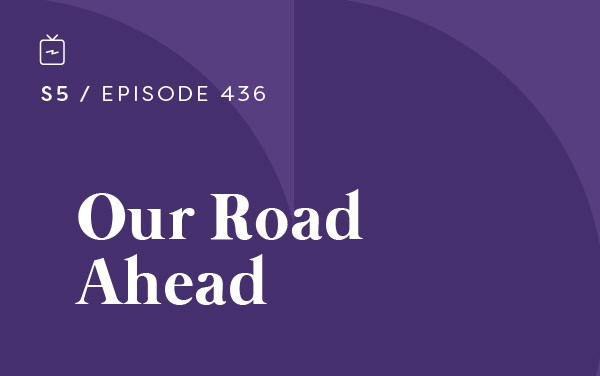
RE 436: Our Road Ahead
Podcast: Play in new window | Download
Subscribe to the Recovery Elevator Podcast Apple Podcasts | RSS | More
Episode 436 – Our Road Ahead
Today we have Lacey. She’s 34 from Illinois and has been sober since May 15, 2020.
Recovery Elevator welcomes our newest sponsor, Athletic Greens.
[02:16] Highlights from Kris:
We feel it is important to use these first few episodes of Season Five to set a foundation for the upcoming year. Kris shares the RE mission statement and talks about what each of the six key themes means to him.
To recap, our mission statement: we offer hope through community and connection. Partnering sobriety seeking individuals with other likeminded people.
Over and over and over again, you’re going to hear us, and our guests, talk about the importance of connection. It’s not because it’s the only thing we know how to talk about; but simply because it’s THAT IMPORTANT.
Recovery Elevator’s Six Themes:
- We are inclusive
- There is no right or wrong way to do this
- Connection
- Don’t just quit drinking
- We need to remain open
- We must pass along what we learn to others
Better Help: www.betterhelp.com/elevator – 10% off your first month. #sponsored
[09:30] Kris introduces Lacey:
Lacey is 34 and lives in Illinois. She is an instructional designer. She is married and has two cats. Lacey loves walking, camping, cooking, and doing crafts. She is part of a community theater and enjoys volunteering at the local animal shelter.
Lacey was young when her parents quit drinking, so alcohol was never around. She feels the mystery made it more interesting to her. She first drank with theater friends in her sophomore year of high school. This was the first time that she felt included in something.
After a falling out with some friends in senior year, Lacey found another friend group that not only drank but did other drugs. She felt like she needed to join in in spite of feeling apprehensive. Cocaine and alcohol went hand in hand for Lacey. She had to have alcohol to deal with the downside of the drugs.
In her 20’s, Lacey started identifying as a partier. She loved being able to drink and stay up all night and she wore it like a badge of honor. Lacey started doing more drugs because they helped her keep drinking.
After some time, Lacey started trying to moderate and find the right balance of the drugs and alcohol, but always ended up failing. She feels she had the dueling personalities during this time. Her mornings were full of anxiety from all of the behavior from the day before.
When Lacey started having health issues that the doctors couldn’t determine the cause of, she came to the realization that her substance abuse may be a contributing factor. In denial, Lacey continued partying even harder until she hit her breaking point and realized that she needed to stop for good.
It was not “one and done” for Lacey. She drank on vacation and then when she came home, she decided to join Café RE if she could make it 30 days. She struggled to embrace sobriety. She started feeling better after six months but thought she could handle drinking again. She then used Covid as an excuse to keep drinking and ended up back where she started. The day after she quit, she got an accountability partner who has become her best friend.
In recovery, Lacey is finding more time to do things that she used to love. Her friend group has changed, and she is ok with that.
Lacey’s favorite resources in recovery: her accountability person, Marco Polo and connection.
The best advice Lacey has received: if you are researching whether or not you have a drinking problem, you do but it’s not a death sentence. It’s ok, embrace it, it will be so worth it.
Cafe RE Use the promo code OPPORTUNITY to waive the set-up fee
You’re the only that can do this RE, but you don’t have to do it alone.
I love you guys.
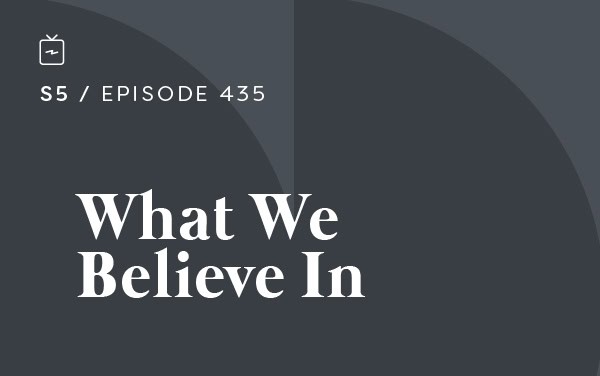
RE 435: What We Believe In
Podcast: Play in new window | Download
Subscribe to the Recovery Elevator Podcast Apple Podcasts | RSS | More
Episode 434 – Season 5 – What We Believe In
Today we have Alex, he is 35, from Lincoln, NE and took his last drink on January 20, 2023
Recovery Elevator welcomes our newest sponsor, Athletic Greens.
[03:35] Highlights from Paul:
Welcome to Season 5! Episode 1 of this podcast dropped on February 25th, 2015. Paul recalls the date and how he felt. He was worried he was going to crash and burn. But 10,000,000 downloads later, he still hasn’t had a drink and the podcast is still going.
Paul discusses the plan for Season 5, what RE’s concepts and values are, the podcast schedule and more.
Mission Statement of Recovery Elevator is as follows:
“We offer hope through community and connection. Partnering sobriety seeking individuals with other likeminded people!”
Six themes Paul and Kris will be focusing on this season:
- Recovery Elevator is inclusive
- There is no right or wrong way to do this
- Connection
- Don’t just quit drinking
- We cannot fight an addiction
- We must pass along what we’ve learned to others
Better Help: www.betterhelp.com/elevator – 10% off your first month. #sponsored
[10:49] Paul introduces Alex:
Alex is 35 and lives in Lincoln, NE. He is married with three kids. He stays busy with his family, enjoys landscaping at their new home and works in the financial industry.
Alex first tried alcohol in his senior year of high school. He initially did not drink with his friends, but eventually gave it a try. He started going to parties and enjoyed the assistance alcohol gave him socially. He didn’t drink very regularly but when he did drink, he drank heavily. He did have a close call when getting pulled over once, but the officer called his parents instead of charging him with driving under the influence.
Alex joined a fraternity in college and says his drinking escalated at that point but was not out of control. He was still able to do well academically. After college he moved to Chicago, and he used drinking as a way to make friends. He was attending grad school and was drinking heavily but still highly functional.
He first started questioning his drinking when his brother was going through some issues with substance abuse. He says he was blacking out at least twice a week but wasn’t sure if he had a problem. This is when Alex first tried moderation that he says worked for a while, but the rules became softer over time.
The first time Alex recognized that his drinking might be an issue was when his wife went into labor with their second child, and he had been drinking so he was unable to drive her to the hospital. Over time he realized that he was not fully present for his children, and he didn’t time to pass and realize that he had drank their childhood away.
After Alex had around 50 days of sobriety and went back to drinking, he realized how much better he felt sober and realized that is what he wanted. That paired with wanting to be a better parent helped him focus on trying sobriety again.
Alex took his first step by going to an online AA meeting just to listen. It was there that he realized that seeking sobriety wasn’t something to be afraid of. He drank that night but burned the ships with his family telling them that his life of sobriety would be starting the next day.
The first few days found Alex excited for sobriety. Within a short period of time, he found his sleep improving, started getting compliments at work, and was generally feeling better. Since quitting drinking Alex feels that his emotions have leveled out and life is no longer on “hard mode”.
Alex’s favorite resources in recovery: quit lit, Reddit, realizing that he is not alone.
Alex’s parting piece of guidance: if you’re not successful the first time, you are definitely going to learn on each attempt of sobriety so keep at it.
Cafe RE Use the promo code OPPORTUNITY to waive the set-up fee
Recovery Elevator
Go big, because eventually we all go home.
I love you guys.


